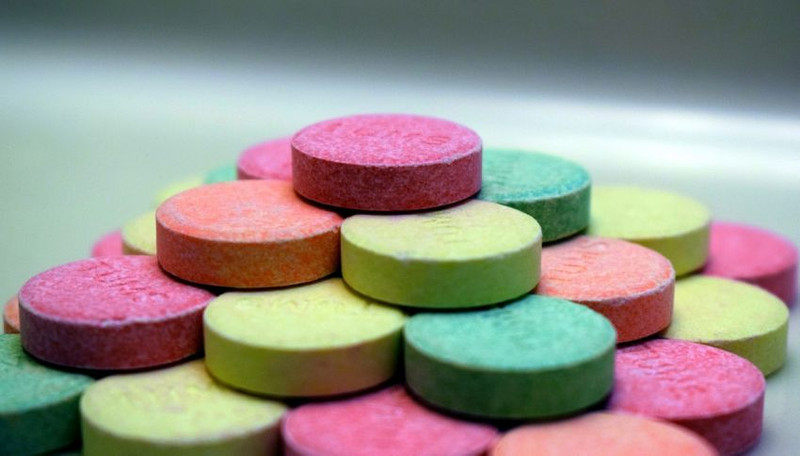Acid indigestion. It is a sensation many of us are familiar with. Its main symptom features a burning feeling, often accompanied by pressure or pain, as recently consumed food comes back up the throat and into the mouth, leaving a taste that is acidic or at least bitter. The question is, is it just a simple case of heartburn or something more involved, such as acid reflux or, worse yet, gastroesophageal reflux disease, better known as GERD? Heartburn, acid reflux and GERD are not exactly the same thing, nor are they separate health conditions; yet they are closely related. Perhaps the best way to describe their relationship is that heartburn is a symptom of both acid reflux and GERD, and GERD is an advanced version of acid reflux with more severe symptoms. Heartburn symptoms most often appear when a person lies down soon after consuming a meal, snack, or a particularly guilty pleasure. The first line of defense is typically an antacid tablet, which can provide immediate relief to many cases of heartburn. But there are times that the burning, yucky sensation is a sign of a more serious condition.
These 3 Conditions Explained
- Heartburn. Per webmd.com, more than 60 million adults in America suffer heartburn at least one a month – for 15 million American grownups, it can be a daily occurrence. Heartburn is a symptom of GERD, per webmd.com, which is described as burning pain in the chest area that begins behind the breastbone and moves upward into the neck and throat. A sufferer can often get a taste of what he or she just ate or drank. The unwelcome sensation can last up to two hours, which is why having antacid tablets stocked nearby, or carried in your pocket when eating away from home, is a good idea. Be prepared. In some cases, heartburn pain might be perceived as a symptom of heart disease or even the sign of a heart attack, although heartburn pain is less likely to be affiliated with physical activity, such as a strenuous workout. If you have such pain and have any doubt about its source, it's wise to seek immediate medical attention. Some common irritants of heartburn, per rxlist.com, include alcohol, caffeine, aspirin, acidic juices, chocolate, smoking, pregnancy, obesity, and some prescription drugs. It occurs most often after eating a big meal – think Thanksgiving dinner. In many cases, heartburn has little bearing on one's general health.
- Acid reflux. Mayo Clinic describes acid reflux as the backward flow of stomach acid into the esophagus, which is the tube that connects the throat and stomach. Acid reflux is also known as gastroesophageal reflux, in which the sufferer can feel heartburn in the chest of regurgitated food or sour liquid in the back part of the mouth. On occasion, acid reflux can progress to the point where it then is diagnosed as GERD, which is a more severe form of acid reflux with a wider variety of symptoms.
- GERD. Frequent or even chronic heartburn is the most common symptom of GERD, which has been described as a digestive disease. Other GERD symptoms include belching, regurgitating stomach acid, coughing, and difficulty swallowing, per sahpendleton.org. Speaking of Thanksgiving week, which is just a month away, it has been pegged as the time when GERD sufferers, per morethanheartburn.com, run the greatest risk of experiencing an increase in heartburn, coughing and nausea, among other symptoms. Estimates are that 60 percent of adults will experience GERD sometime during the year, and that 20-30 percent will experience weekly symptoms if left untreated. There is no known single cause of GERD, which can be diagnosed by your doctor or a gastroenterologist. The International Foundation for Functional Gastrointestinal Disorders (IFFGD) lists the following as reasons to visit your doctor to see if you have GERD: 1. Heartburn is experienced two or more times a week; 2. Heartburn worsens; 3. Your heartburn wakes you up at night; 4. Heartburn experienced off and on for several years; 5. Difficulty or pain when you swallow; 6. Discomfort from heartburn affects your daily activities.
Heartburn Relief
Per healthline.com, here are some quick remedies for dealing with heartburn, whether it's the result of gobbling down some spicy jalapeño nachos or those delectable deep-friend onion rings:- Loosen the belt, untuck the shirt and maybe unbutton a couple buttons. Clothing that is too tight can bind the stomach.
- Get on your feet, and stand tall. If you're slumped down, seated, or lying down, your internal organs can get compressed, helping to produce heartburn.
- If you are lying down and can't get up, or are assisting someone confined to bed, position yourself so that your body from the waist up is elevated. Just elevating your head might not be enough.
- Baking soda mixed with water is a good Plan B if you don't happen to have antacid pills available. That mix can calm heartburn. So, who doesn't have baking soda somewhere in the cupboards? (If not, next time you will, right?)
- Chew a stick or two of gum. It increases saliva, which can dilute and wash away acid built up in the gut.
- Avoid cigarette smoke. Self-explanatory.
- Go out and get some medicine. We're talking over-the-counter stuff such as antacids, H2 blockers and proton pump inhibitors (PPIs).

